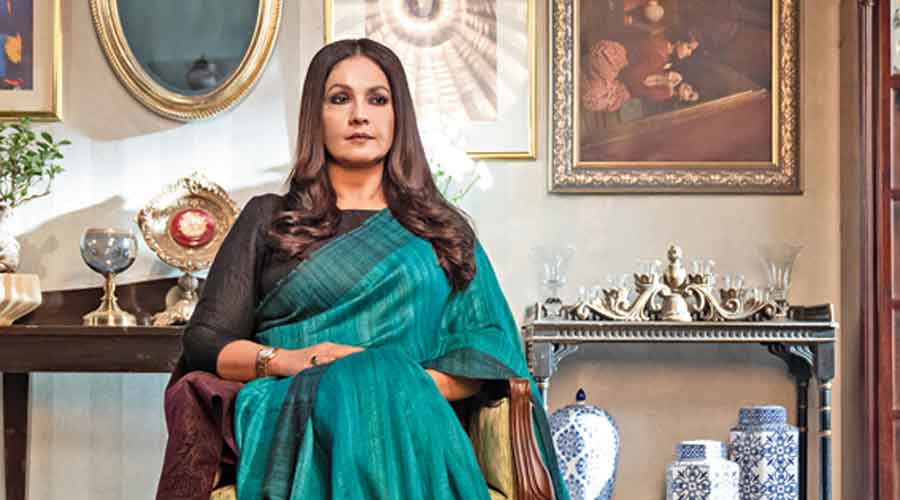In the West, the uniquely privileged Meghan and Harry have sparked off the “royal victimhood” debate. But crying victim from inside a sprawling Californian mansion has a parallel in Mumbai too, a “royal” example being Bombay Begums, a cringey show on Netflix.
The good part about it is that Pooja Bhatt makes a spirited return to acting, allowing herself to be menopausal and baring the war marks of age without shrinking. Bombay Begums also removes the shelf life imposed on our actresses. In fact, women like Pooja Bhatt and Neena Gupta have it better now than they did in their prime.
But when “women power” is hammered over the head without subtlety, it is time to look at what “feminist cinema” is trying to say. Let’s use Bombay Begums as the template.
It’s the story of Royal Bank CEO Rani Irani (Pooja), her deputy Fatima Warsi (Shahana Goswami), their entry-level junior Ayesha Agarwal (Plabita Borthakur) and sex worker Laxmi (Amruta Subhash). Rani has ousted seniormost Deepak Singhvi to put Fatima in the seat. Fatima has taken the seat without her husband being aware of it, even as they are getting ready for a baby through IVF. When she has a miscarriage, her husband is more devastated, and it’s she who suggests surrogacy.
Ayesha lies to her landlady, moves in with every known male and female friend, smooches and has sex with all of them, gender no issue. Rani has a lover outside her marriage; Fatima cheats on her husband with a man who makes her feel like a woman. Laxmi has been blackmailing wily Rani, who silences her by making her the first beneficiary of a CSR welfare scheme by the bank.
Ethics and morals, the overdose of sex, smoke and even a teen snorting cocaine, be damned. At the end of all the wickedness, it makes you wince that all the power women are shown as weak-willed humans who made wrong choices to get ahead in life or to survive. That’s where this brand of feminism needs to take a hard look at itself.
Being as manipulative as any man, sticking it to the other gender, being deceitful, helping yourself to another’s weakness (Ayesha taking over friends’ homes like she has a right to it all), infidelity, playing with the truth, bending the law... And crying victim at the end of it is emancipation?
Also, if feminism means equality, let’s turn the tables on Fatima. An ambitious banker suggests surrogacy but inexplicably turns sour about it and, in the middle of lovemaking, he talks about their careers and switches off. He’s moody about the baby, appalled at balloons and dolls that await the infant, punctures his wife’s excitement, shrugs off the surrogate as “just a womb” and ambles off to have sex with another woman. How much sympathy would you give the husband? Wouldn’t this version have put the man on the mat as insensitive and declared the spouse as wronged?
And, does showing every woman as having slept her way to the top, with Pooja declaring “main bhi” with her chin up, do justice to the well-fought success stories of our gender?
What’s also disturbing is that at no stage is there any substantial scene that shows Rani or Fatima or Ayesha being proficient women who have earned the right to be where they are. Manipulation is not a substitute for competence.
In the general preachiness, one can almost hear director Alankrita Shrivastava say, “Pooja, your chin up, sneer slightly and walk out holding your head high. You’ve said your piece on behalf of all women.” But to do true justice, feminist cinema needs to make women worthy of their jobs and their gorgeous wardrobes.
The one authentic part is the stepmother reaching out to the children who would rather connect with a dead mother than with the father’s new wife. It’s a syndrome that Shammi Kapoor’s wife Neela too encountered. Happily, like Pooja in Bombay Begums, Shammi’s kids have an enduring relationship with mom Neela today.
Bharathi S. Pradhan is a senior journalist and author











